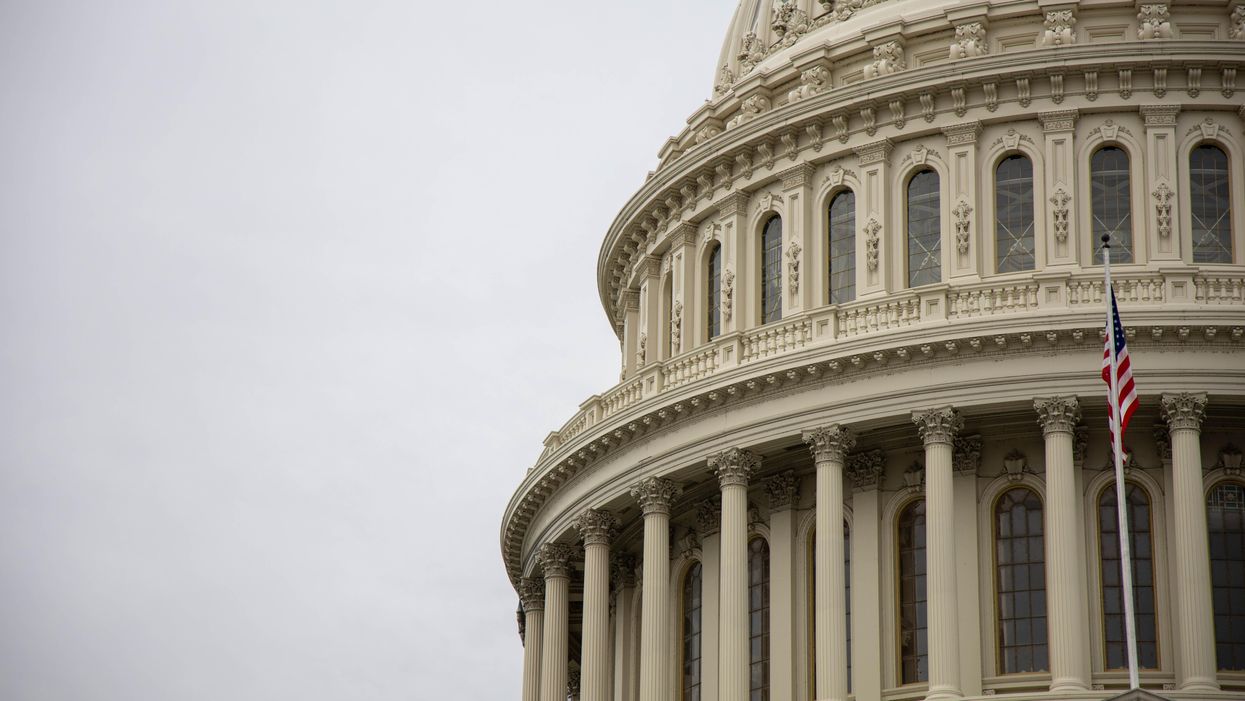Why The 2022 Midterms Just Might Surprise Us
Tradition tells us that, come the midterms, the president's party loses seats in the House. If this tradition holds in 2022, that could be bad news for Democrats, whose House majority now stands at only nine seats.
But history of late doesn't seem to be commandeering the driver's seat. Right after Joe Biden turned Georgia blue, Politico confidently stated that to win the state's two Senate runoffs on January 5, "the Democratic Party will have to defy a long track record of failure in overtime elections." So everyone believed, Democrats included. "Everyone" was wrong.
Special elections tend to produce low turnout, and former president Donald Trump wasn't on the ballot to motivate Democrats to show up. But while Trump wasn't on the ballot, he was in voters' heads. Democrats took both seats.
And that was the day before Trump sent his goons on a rampage at the Capitol. Rather than outrightly condemning that violent attack on the democracy, Republicans are trying to downplay a horror Americans saw with their own eyes. Rather than evict the man who incited it from party leadership, Republicans have doubled down in demanding servile obedience to the toxic figure now walking the corridors at Mar-a-Lago.
As a result, Trump will still be in the voters' heads come November 8, 2022. And the party-turned-personality cult seems to be ignoring how unlovable most voters find its object of adoration. Or perhaps it doesn't know.
The National Republican Congressional Committee recently withheld internal polling showing weak Trump support in key swing districts. His unfavorable ratings were 15 points higher in these districts than his favorable ones. (Recall also that Trump left office with an approval rating below 40 percent, the lowest for a first-term president since Jimmy Carter.)
One imagines that as the 2022 election approaches, Republicans in swingable districts will say the party has moved beyond Trump. The evidence so far says otherwise.
A Gallup poll from February found that Americans' favorable opinion of the Republican Party had fallen to 37 percent, while 48 percent saw the Democratic Party in a positive light. It also reported that a record-high 63 percent of Republicans supported a third party, as opposed to 46 percent of Democrats. And though 68 percent of Republicans wanted Trump to remain party leader, only 47 percent of Republican-leaning independents — less than half — felt that way.
Meanwhile, the midterm tradition isn't unbreakable. In 2002, the party of then-President George W. Bush took another eight seats in the House and two in the Senate. Those elections took place about a year after the trauma of 9/11. The next midterms are scheduled about a year after another national trauma, the COVID-19 pandemic, the end of which President Joe Biden will have presided over.
In 2022, Democrats will be defending only seven House seats in districts Trump won. No Senate seat in a state that voted for Trump will be up for grabs. And the economy is expected to continue booming.
Republicans had a way out with Liz Cheney, a rock-ribbed conservative from Wyoming willing to condemn Trump for his efforts to cancel the will of the voters and for stoking the insurrection. But no, the cult turned Cheney into the enemy rather than a path for renewed respectability.
Some Republican operatives may hope that the voters will have relegated the Jan. 6 outrage to "the past." Good luck with that. A leadership that, six months after the election — four months after the riot — still won't concede that Trump lost will have a hard time rewriting that vivid history by next year. In any case, Trump won't let them. And neither will Democrats.
Follow Froma Harrop on Twitter @FromaHarrop. She can be reached at fharrop@gmail.com. To find out more about Froma Harrop and read features by other Creators writers and cartoonists, visit the Creators webpage at www.creators.com


